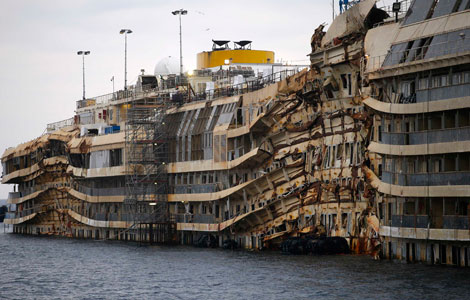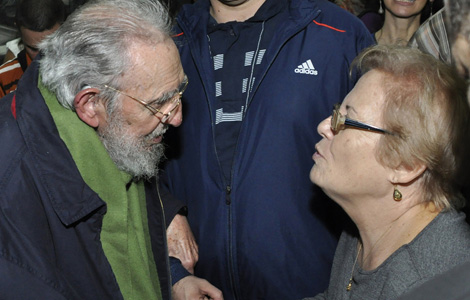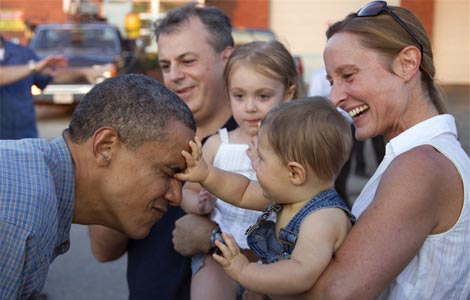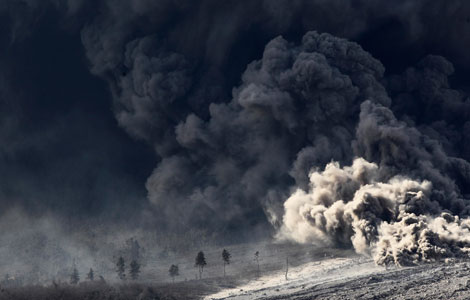

BEIRUT - Abu Jamal still remembers when Lebanese militiamen allied to Israel woke him and his family early one September morning more than three decades ago and dragged them out into the street.
The gunmen forced him and other Palestinian refugees in the Sabra and Shatila camps to line up, separated the men and women, and dragged young men from the line to be killed. Abu Jamal's son, 19 at the time, was among those they chose.
"He was in his last year of school," said Abu Jamal, who wears a button with his son's picture on his sweater and asked that his full name not be used. "He never saw his diploma."
Israeli troops did not intervene during the bloodshed, which went down as one of the worst atrocities of Lebanon's 1975-90 civil war. Ariel Sharon, who died on Saturday, was defence minister at the time and many Palestinians in Sabra and Shatila still blame him for the hundreds of killings.
Perhaps unsurprisingly, survivors showed little sympathy when they heard of the Israeli commander-cum-politician's passing after eight years in a coma.
Sitting in her home down the street from where a memorial stands at the site of a mass grave, 70-year-old Milany Boutrous Alha Bourje recalled how her husband and son were shot dead that day. Sharon, she said, deserved far worse than he got.
"May God send him deep into the earth," she said, black and white photos of her slain family decorated with red artificial roses leaning against the wall beside her.
"I wish he had suffered as we've suffered. Thirty-two years we've been suffering. He was in his state for eight years, but I wished he'd suffered for another 10."
Bourje, who appears in an iconic photograph of the 1982 massacre crying out and waving her arms near a row of bodies, said she was no more optimistic about the future now Sharon was dead.
"Nothing changes," she said. "The situation we are living in does not change."
A 1983 Israeli inquiry found Sharon bore "personal responsibility" for not preventing the bloodshed, pushing him to resign as defence minister. But less than two decades later he rose to lead his Likud party and was elected prime minister.
The killings came after the assassination of the Christian president-elect Bashir Gemayel and Sharon argued they were part of a vendetta between the militias and the Palestine Liberation Organisation that predated Israel's occupation.
"TO HELL WITH SHARON"
Palestinian refugees live in dire conditions in Lebanon, where many are packed into overcrowded, impoverished "camps" which are really more like urban slums of concrete buildings, pot-holed roads and tangled wire.
Sabra and Shatila in Beirut are crowded neighbourhoods of narrow alleys where pictures of Yasser Arafat, Mahmoud Abbas and young men killed in conflicts with Israel cover many walls.
Lebanese authorities, fearful of altering the sectarian balance that underpins the political power system, refuse to naturalize the overwhelmingly Sunni Muslim Palestinians and ban them from a wide variety of professions.
Many blame the arrival of the refugees for fuelling conflict that caused Lebanon's war, during which both Israel and Syria sent troops into the country.
Youssef Hamzeh, born the year before Israel's 1948 founding, said he saw little hope Palestinians' lot in Lebanon would improve soon, saying peace talks had produced nothing.
"These negotiations are futile. All the dialogue is futile because Israel's culture is blood," he said.
Standing near a sign at the memorial reading "We will not forget," he echoed others in the camps when he said Sharon should have been put on trial over the killings.
"As a witness to this person and from what I suffered from this person, I say to hell with Sharon and to Sharon's supporters in the Israeli leadership ... who still commit massacres," he said.
"It's not enough that Sharon died."?







